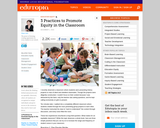
Learn about the thinking behind three equitable practices in classroom where all students are recognized as unique individuals, have equity in voice, and given access to the resources they need to learn.


Learn about the thinking behind three equitable practices in classroom where all students are recognized as unique individuals, have equity in voice, and given access to the resources they need to learn.
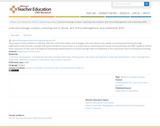
The purpose of this module is to develop effective curriculum leaders and managers who will enhance the quality of teaching and learning through application of the theories, concepts and issues handled in this module. It is hoped that in examining these issues school principals and SMT members will be more conscious of their role of leading and facilitating transformation in schools through effective leadership of the curriculum and of teaching and learning
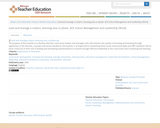
The purpose of this module is to develop effective curriculum leaders and managers who will enhance the quality of teaching and learning through application of the theories, concepts and issues handled in this module. It is hoped that in examining these issues school principals and SMT members will be more conscious of their role of leading and facilitating transformation in schools through effective leadership of the curriculum and of teaching and learning
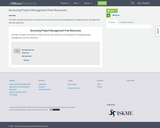
This flyer includes instructions on how to access free resources and templates for bringing project management into the classroom.

This lesson is designed to follow the Intermediate SAEs:The Next Step. The objective is to continue to move students through the research and development of their Foundational Career SAE. The students will continue to work on their Foundational SAE project based on their career interest, but research topics at the advanced level. The teacher may choose to only use the Foundational SAE project or they can also include an immersion SAE project that students keep track of their time, income and expenses over the course of the class. The students will participate in weekly assignments for their Foundational SAE and if they are completing an immersion SAE they will keep track of their hours each week. Starting SAE projects in the classroom should be simple for the teacher and students. Minimum expectations that can still produce success for all students would be tracking 1-hour of SAE time per week, exploring one career topic per week, and recording one financial entry per month. A final report or project at the end of the class would also be a minimum expectation for all students.

In a multi-grade class of fourth, fifth, and sixth graders, students learn to work and communicate in teams. Through projects and a class structure that supports differentiation, Ms. Ehrke is able to keep students challenged and engaged. Her strategies for differentiation and communication can be used in any classroom.

Amazon Future Engineer features live and prerecorded career chats featuring Amazon professionals. Scroll down the page to access videos on the following careers:
- Product Sustainability Manager
- Studio Director
- Software Development Engineer
- AWS Startups Account Manager
- Sr. Technical Product Manager, DIsaster Relief
- Engineer Intern
- Sustainability 101
- Tech in the Music Industry
- Transportation 101
- Software Engineers
- User Experience (UX) Designers
- Future Engineers
- Transportation for Good
- Remarkably Black in Tech
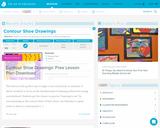
This website has National Standard aligned lesson plans, courses art teachers (and others) can take for credit or professional development, and online magazine, videos, and art conferences.
They cover art: advocacy, assessment, classroom management, creativity, technology, curriculum, differentiation, Instructional strategies, media, techniques, methods, approaches, organization, philosophies, and professional development.

In this teaching instruction video Ms. Yim explains the benefits of a rule where students ask 3 before her.
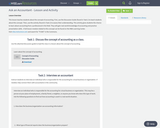
This lesson teaches students about the concept of accounting. First, use the Discussion Guide (found in Task 1) to teach students about this concept. Then, use the activity (found in Task 2) to assess their understanding. This activity gives students the chance to learn about accounting from a professional in the field. They will gain real-world knowledge of accounting and practice presentation skills. A full lesson module related to this concept can be found on the MBA Learning Center. Visit mba.instructure.com and search for "FI:085" in the Commons.

Learn how to plan, develop, and manage student-centered assessment strategies that can benefit your teaching and your students’ learning. This resource includes a Common Cartridge backup (.imscc file) that you can restore to your own LMS instance. Note: If you are using Canvas, use the .MBZ (Moodle) version of the course. Download of Moodle or Common Cartridge will begin once you click on this resource.

Learn how to plan, develop, and manage student-centered assessment strategies that can benefit your teaching and your students’ learning. This resource includes a Moodle 3.1 course backup (.MBZ file) that you can restore to your own Moodle instance. Note: If you are using Canvas, use the .MBZ (Moodle) version of the course. Download of Moodle or Common Cartridge will begin once you click on this resource.
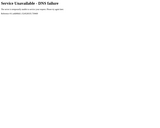
Learn how to plan, develop, and manage student-centered assessment strategies that can benefit your teaching and your students’ learning. This resource includes a Common Cartridge backup (.imscc file) that you can restore to your own LMS instance. Note: If you are using Canvas, use the .MBZ (Moodle) version of the course. Download of Moodle or Common Cartridge will begin once you click on this resource.
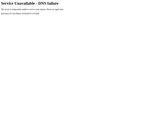
Learn how to plan, develop, and manage student-centered assessment strategies that can benefit your teaching and your students’ learning. This resource includes a Moodle 3.1 course backup (.MBZ file) that you can restore to your own Moodle instance. Note: If you are using Canvas, use the .MBZ (Moodle) version of the course. Download of Moodle or Common Cartridge will begin once you click on this resource.
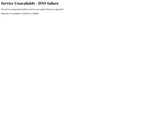
Learn how to plan, develop, and manage student-centered assessment strategies that can benefit your teaching and your students’ learning. This resource includes a Common Cartridge backup (.imscc file) that you can restore to your own LMS instance. Note: If you are using Canvas, use the .MBZ (Moodle) version of the course. Download of Moodle or Common Cartridge will begin once you click on this resource.
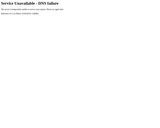
Learn how to plan, develop, and manage student-centered assessment strategies that can benefit your teaching and your students’ learning. This resource includes a Moodle 3.1 course backup (.MBZ file) that you can restore to your own Moodle instance. Note: If you are using Canvas, use the .MBZ (Moodle) version of the course. Download of Moodle or Common Cartridge will begin once you click on this resource.

Learn how to plan, develop, and manage student-centered assessment strategies that can benefit your teaching and your students’ learning.
This resource includes a Common Cartridge backup (.imscc file) that you can restore to your own LMS instance. Note: If you are using Canvas, use the .MBZ (Moodle) version of the course. Download of Moodle or Common Cartridge will begin once you click on this resource.

Learn how to plan, develop, and manage student-centered assessment strategies that can benefit your teaching and your students’ learning. This resource includes a Moodle 3.1 course backup (.MBZ file) that you can restore to your own Moodle instance. Note: If you are using Canvas, use the .MBZ (Moodle) version of the course. Download of Moodle or Common Cartridge will begin once you click on this resource.

Learn how to plan, develop, and manage student-centered assessment strategies that can benefit your teaching and your students’ learning. This resource includes a Common Cartridge backup (.imscc file) that you can restore to your own LMS instance. Note: If you are using Canvas, use the .MBZ (Moodle) version of the course. Download of Moodle or Common Cartridge will begin once you click on this resource.
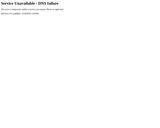
Learn how to plan, develop, and manage student-centered assessment strategies that can benefit your teaching and your students’ learning. This resource includes a Moodle 3.1 course backup (.MBZ file) that you can restore to your own Moodle instance. Note: If you are using Canvas, use the .MBZ (Moodle) version of the course. Download of Moodle or Common Cartridge will begin once you click on this resource.